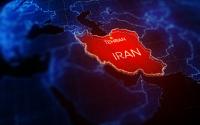18 June 2004David Landau and Akiva Eldar
"Definitely," says Yasser Arafat, waving his arm for emphasis. He definitely understands and accepts that Israel must be, and must stay, a Jewish state. The Palestinians "accepted that openly and officially in 1988 at our Palestine National Council," and they remain completely committed to it. Thus, the refugee problem needs to be solved in a way that will not change the Jewish character of the state. That is "clear and obvious." "Definitely" was a word that kept recurring in our two-hour, free-wheeling conversation, which took place almost entirely in English with the chairman of the Palestinian Authority at his headquarters-cum-jail, the Muqata, in Ramallah on Tuesday. But Arafat was far from definite on key details of crucial issues. Hard though we tried to wrest from him categorical statements, he often veiled his precise thoughts in rambling reminiscences or digressions. A solicitous host and lively raconteur, he apparently feels he must still hold some cards close to his chest for that last, fateful hand that he plainly believes he alone will yet play, one day, with Ariel Sharon or another Israeli leader. Perhaps that is why the dispute between former top Israeli intelligence officers over Arafat's true intentions, that has flared up on the pages of Haaretz during the last week, drew so much attention and interest. Even though Arafat is just half an hour from Jerusalem, accessible and loquacious, it takes intelligence professionals to penetrate the pall of mystery and ambiguity that envelopes him. And even they can't agree. Amos Gilad, the former No. 2 at Military Intelligence (MI), who now heads the defense minister's strategic think-tank, says Arafat never meant peace with Israel. He was ever bent on the eventual demographic defeat of the Jewish state. Amos Malka, onetime MI commander, says the chairman would have done a deal at Camp David or Taba, had Israel offered even more generous terms than then prime minister Ehud Barak did. Malka says that readiness on the Palestinian leader's side is still there - if those terms were offered today. Prompted by these differing assessments on such weighty questions, we tried our own hand at unraveling the riddle of Arafat. Some of his responses - all were carefully worded; the wily, seasoned chairman is no man for loose language - seemed more forthcoming than in the past. But much fog remains. Excerpts: Haaretz: How are you?Arafat: "Not bad!"But you've had better days. These are difficult days? "Definitely."Have you followed the Haaretz reporting about the dispute within the intelligence community?"Yes."And do you think it contributes to the discussions?"These are the facts and the realities. Not to forget: We started the peace process even before Oslo agreement. You remember, in Vienna we started these talks for peace through [then Austrian chancellor Bruno] Kreisky and Peres. You remember, and with the participation of the Socialist International leaders, and after that in Sweden, you remember, it was very successful ..." But the most important decision you took was in `88 in Algiers."Yes, in Algiers, yes, very important ... And not just me, all of the PNC - Palestinian National Council - accepted it."Could it ever be possible for any Palestinian leader, you included, to take a different course, a different policy from the `88 decision?"Definitely [not], because it is a PNC decision, for all the Palestinians all over the world. And it was reconfirmed in the presence of President Clinton, in 1996."In this debate between the intelligence officers, some say Mr. Arafat can make a deal based on the Algiers declaration of `88, which means the `67 borders with East Jerusalem, and with a solution for the refugees, now ..."... and not to forget, we had agreed upon a swap ... of land of equal `quality and quantity.'"Yes, that would add up to 100 percent of the territories ..."Yes ... because, not to forget, this was the platform of the Madrid conference [in 1991]."If your friend, your partner for peace of the brave, Mr. Rabin, could come back today and say: My friend, Chairman Arafat, I offer you the Geneva document, which means 100 percent including the swap, with the Geneva solution for the refugees, with Jerusalem, with the Temple Mount, can we say "mabruk" [congratulations]?"Not to forget, I had sent my special envoy Manuel Hassassian [to deliver a speech at the Geneva signing ceremony] ..."To deliver the speech ... yes, but for the Israeli public they would like to know if this means that Chairman Arafat is willing to make a deal based on Geneva."No doubt we had appreciated it, it is not official agreement, I had appreciated it, and I sent out my special envoy Dr. Hassassian, to give my speech."If we take the main problem, the refugees, the right of return, are you willing to accept the Arab League proposal, which means a just and agreed-upon solution, based on United Nations Resolution 194? [Arafat noted in his response that the Arab League proposal was put forward by Saudi Arabia. The Palestinians, like other Arab states, had accepted it. They had also accepted, he went on to note, the various American diplomatic initiatives: the Tenet report, the Zinni mission and the Mitchell report.]The problem in Israeli public opinion is this issue of right of return, the right of return of the Palestinian refugees. People in Israel are afraid that there will be an influx of huge numbers of refugees. For instance our newspaper, Haaretz, has always been on the side of a peaceful agreement with the Palestinian people. We consistently supported the peace process. But when Camp David - Taba - broke up over ... refugees ... "No, actually, no no no. It had not been broken because of the right of the refugees, at all. You remember after Camp David we had the Sharm al-Sheikh agreement with the participation of President Clinton, the participation of President Mubarak, the participation of King Abdullah, the participation of [Javier] Solana, the participation of Kofi Annan, and the two Palestinian and Israeli delegations. And later, and before Taba, we went also to Paris and also Albright was there, Kofi Annan was there, Solana was there, we started it in the American embassy and went to complete it in the office of President Chirac."And then you refused to meet with Peres, Clinton asked you ..."Give me a chance to complete my ..." Sorry. [A lengthy disquisition on what transpired in Paris followed.] And who decided to stop the Taba talks? "The Israelis. Not Taba talks; Taba agreement. The Egyptians were there, and the Europeans were there, in Taba."What about a solution that can allay Israeli concerns about a flood of refugees? "Look, look, I discussed this matter clearly and obviously in Camp David with President Clinton and with Barak. [After a long aside about student days in Cairo, Arafat referred to a purported clipping, from Haaretz, that he carries with him.] "It is still in my pocket, I will give it to you to see it: 62 percent of those who came [to Israel] from the Soviet Union, are not Jews; 90 percent of these are Christians and 10 percent are Muslims. And I told Clinton, okay, if they are accepting those 62 percent - they have become 70 percent by now - why not to give the chance for our people? Especially in Beirut, who are living in Lebanon, in a very very very bad circumstances." All of them? "Not all of them, a part of them who are still in refugee camps."Amos Malka believes, I will quote exactly and tell me if he's right. He says, "Mr. Arafat always, and even now, will be willing to sign an agreement that will give him all the West Bank and Gaza with a swap ... 97 percent with a swap.""Between 97 and 98." Yes, and the rest of it, with a swap. "Yes. With East Jerusalem as capital, the Temple Mount, under the sovereignty of the Palestinians - he didn't mention this, but we know the Wailing Wall..."The Wailing Wall, and not to forget, when I was living with my uncle in this area, I used to stay with those who were praying at the Wailing Wall. And every time my uncle used to come to take me from the Wailing Wall to his home upstairs ..." And the most important thing Malka said, also, is that what Mr. Arafat needs is some Israeli recognition of responsibility for the refugees, the `48 refugees. Israel would admit some 20,000 or 30,000 refugees. He thinks you will be willing to sign this agreement. "First of all, we had an agreement, after Oslo, we had an agreement that the displaced refugees of 1967 can to return openly, if they like to return back to Palestine."To the new state of Palestine."Yes, and a committee from Egypt, from Jordan, from Israel and from Palestine [is to monitor their return]."But this will be your country. "But in spite of that not all of them have returned. They are living in many places, in Jordan, in Egypt, in north Europe, in Germany. They will not return."So what's the analogy? Not all of the `67 refugees are coming back, so not all of the `48 refugees living under difficult circumstances in Lebanon will want to return. Is that what you are saying?"When we left Lebanon, a big part of them came with ... President Clinton asked me how many they are. I told them I don't know, but when I was there they were around 480,000. But now they are less than that ... they are less than 200,000, all of them."Can you say to the Israeli public that your strategy, your goal, is not to change the demography and to change the character of Israel as the Jewish state? Can you assure Israelis that you don't want to use the refugees in order to change the demographic balance and the character of the state?"Why I don't speak about the other refugees? I speak about the refugees in Lebanon because they are living in very hard conditions. Without our help it is very difficult for them to carry on living."Why don't you say that those 200,000 Palestinians in Lebanon are invited, most of them or some of them, to return to the state of Palestine, the West Bank and Gaza, and some, a small number, to the Jewish State of Israel? "First of all, we are not forbidden, and you are not refusing any Palestinians, displaced or refugees, to come to the Palestinian territories; you are not, there is no problem. And as I mentioned there is a committee of the four countries to follow up the displaced refugees. But I was speaking about this tragedy of our Palestinians who are living in Lebanon, and had been accepted by Barak and by President Clinton that we have to find a solution for them."But the solution has to be agreed upon also by Israel."Barak said we have to find a solution for them with the Israelis, with the Americans and with us."And you accept a formula, a solution that will say - this is not going to change the character of Israel ..."We had in `88 in our PNC, it is clear and obvious, we had agreed upon [UN Resolutions] 242 and 338 ... and definitely we are speaking also about a part of our people, our refugees ... Why the Muslim from Russia has a right to return and the Muslim from Palestine has not the right to return? And why the Christian from Russia has the right to come and the Palestinian Christian has not the right to come?"You understand that Israel has to keep being a Jewish state? "Definitely."Definitely."Definitely, I told them we had accepted openly and officially in `88 in our PNC ..."`We stayed, you went'We want to follow up on this matter. You know, Shlomo Ben Ami has just published a book in which he basically says that he failed to reach an agreement with you, your people, at Camp David and Taba, and he believes that it's impossible to reach an agreement with you. There is one point which he dwells on very, very prominently in his book. He says that Israel under Barak was prepared to concede sovereignty over the Temple Mount to the Palestinian state, and the issue was archaeological excavation underneath the Temple Mount. And he says that the Palestinian side at Taba was prepared to undertake not to dig under the Temple Mount, but was not prepared that the agreement should mention a historical connection between the Jewish people and that place. Ben Ami says that to him, this meant that you, Yasser Arafat, don't recognize the historical connection between the Jewish people and this land. "Joseph and his father and his brothers were living beside Nablus. It is historically or not ...That's in the Bible."It is in our Koran. The holy story of Joseph before he went to Egypt, in our Koran, in the tales. Who can say, therefore, that there is no relation [between the Jews and the land]? Do you forget that we are not calling you our cousins? Actually you are my cousin. I am from Abraham, Hagar, my grandmother was Hagar, and you are from Sara ... yes or no?Yes, I believe that, and do you believe that?"Definitely. This is my grandfather - Abraham ... your grandfather, and he's my grandfather also. You are from ... Yitzhak and Jacob. So it is clear, historically ..." So, therefore, it's clear historically, and do you extend that historical vision toJerusalem ... Nablus is not a practical question, a practical question is Jerusalem."The practical question, Jerusalem, means Salem - the king who were there when Abraham came, Lot ... yes? He received them in a very friendly, brotherly ..." Malkitzedek, in the Bible he is called Malkitzedek - king of Salem. "And you, when Sara died he got the cave in Hebron to bury her there, and still there is an agreement between us, that you have the right to go to visit this cave which is a part of the Abraham mosque in Hebron ... You are forgetting this ..."What are you saying? Can I get a little bit deeper. What are you saying about the king of Salem? What are you implying? That you identify with with the king of Salem? But you said before that you descended from Abraham, from Abraham through Ishmael?"Yes, yes but we and you were cousins."Descendants from Abraham."Abraham, yes, but we became citizens. We stayed here and you went where?"To Egypt. "To Egypt!"Jewish prayer agreementsWhen it comes to Jerusalem, and to Haram al-Sharif, if Yitzhak Rabin came to you and told you, you can have sovereignty on Haram al-Sharif, what kind of arrangements, practical arrangements, would you be willing to give the Jews who want to pray there?"It is clear what I had accepted in Camp David: The Wailing Wall, the Jewish Quarter, with a passage freely under your control."What about what we call the Temple Mount and you call Haram al-Sharif? Under your control, would you accept Jews to worship there, to pray? Or only at the Wailing Wall?"Until now, you have not found anything [in archaeological excavations] referring to the [Solomonic] temple ... You found Herod's temple."Well, what's the matter with that? Why isn't that old enough for you? Herod's temple stood 2,000 years ago. That's the temple that Jesus walked in, it was a Jewish temple. What's the difference to you ... With all due respect, what's wrong, what's inferior - in your eyes - the temple of Herod to the temple of Solomon? The Jews were praying in the temple of Herod more than 2,000 years ago. Is that a historical fact? "... under your control the Wailing Wall ... I agreed upon in Camp David that the Wailing Wall ..." [Discussion of this issue continued] Risking disunityAre you happy with Ariel Sharon's plan now to disengage? Will you be able to take over Gaza and show the Israeli public that you can get your act together, that you can control Gaza? "We have done many times. We have done it in Gaza when I was there, and you remember how many clashes we had with Hamas and with others, and in Bethlehem we succeed completely to take control."So you will not hesitate, if Israel gets out, even to risk the unity of your camp, which means to fight against the Hamas?"Even against anyone from Fatah who comes out against the law. I can't keep silent with him. You know, I am respecting my word, and my position."You're working with the Egyptians on security in Gaza after the Israeli withdrawal?"We [have worked with Egypt], not to forget, since we returned, ever since the Oslo agreement. We continued it in Cairo, the security agreement in Cairo, and even the details had been done in the office of President Mubarak himself." As an example of his ability to takes decisions and take security control of an area, Arafat cited the case of Bethlehem. After the siege there of the Church of the Nativity, he recalled, the PA had faithfully implemented the agreement that ended the siege, deporting activists to Gaza and to various European countries and making sure they stayed there. Order in Bethlehem itself, moreover, was fully restored and maintained by PA security forces. It was entirely unjustified, therefore, he added, the Israel Defense Forces to retake control of the town in recent weeks. The chairman also provided details of several recent episodes in which PA security had prevented terror attacks on Israel. These episodes have been meticulously reported and disseminated by British intelligence, which is monitoring the security situation on behalf of the Quartet. In one case, a 17-year-old Bedouin girl was arrested who had planned to blow herself up inside Israel. "I sent my policemen, after contacting the Israelis, to permit them to go to arrest her. I contacted the leaders of the Bedouin and asked them, please, I want her from you. At five o'clock we brought her, and we handed her over, and this was under the complete control of the Israeli security." Israel knew full well of the PA's anti-terror efforts. But it seemed unwilling to make the information available to Israeli public opinion. After the intifada started, why didn't you give clear orders to your people to stop it?"I gave it, I gave it."You know, Amos Gilad tells it like this: Mr. Arafat is calling Barghouti, he puts money, and says "Allah maak" [God be with you], and [Marwan] Barghouti understands that he has to start terrorism."First of all, first of all, it is a big lie, because Barghouti is not dealing with me directly. He is close friend to me. Do you know why? Because his cousin, Bashir Barghouti, was at my college, when we were together, students, in Egypt in Cairo. And we were together. He is a communist and I am not a communist, and in spite of that I insist for him to participate with me in the election of the Palestinian students. We were in that period 26,000 Palestinian students in Cairo ... [a lengthy reminiscence followed here]. And this is the relation between me and Marwan Barghouti. But you never gave him ... "No, but his direct contacts as one of the Fatah, he a friend of me, but his direct contact, not with me, and I don't give any order ... of this. Never."Failed effortsOnce lunch was announced, the tape-recorders were switched off and everyone moved from the end of the long table to the middle. Arafat seated Eldar next to him and Landau opposite. The conversation continued to flow. The Haaretz reporters pointed out that the bulk of Israeli public opinion was convinced it was not possible "to do business with you."Why, then, Arafat replied, had Ariel Sharon attended the Wye River negotiations (during Netanyahu's premiership) and favored signing the agreement with him over Hebron? Why, as prime minister, did Sharon repeatedly send his son, Omri, to meet with him? Why did he endorse the Mitchell Committee report (though he did not, Arafat claimed, implement its recommendations)? Why did he go along with then CIA director George Tenet's effort to bring about an end to the violence in cooperation with Arafat? Why did Sharon sign on to the U.S. road map (although, Arafat claimed, Israel's 14 reservations were "more than the road map itself").This long saga of (failed) diplomatic efforts involving the Sharon government and the Palestinian Authority showed, in Arafat's view, that Israel did believe it could do business with him - despite the rhetorical claim that it cannot. At the end of the day, he added, it was he who had signed Oslo and he who had negotiated at Camp David. His implication was unmistakable: As long as he lived, he was he only man to do business with. Would there be peace now had Yitzhak Rabin lived? "Definitely," Arafat fairly shouted his reply. It "must not be forgotten," he added pointedly, that whereas the peace with Egypt had brought Israel scant international rewards, the Oslo Accord with the Palestinians had resulted in a surge of international recognition "from China to India, from Malaysia to Indonesia." Israel's road to acceptance and prosperity ran through peace with the Palestinian people. Life under two years of siege was "definitely not easy," the rais said. He worked, ate, slept and received guests all in this one large room. Despite their leader's prolonged and undignified detention at Israel's hands, "our people still insist on following up the peace of the brave."The room is in bad need of a coat of paint - as are the adjoining small rooms and the staircase leading up to them. There is little air or light - partly because the windows in the corridor are blocked by sandbags. Alongside this main building, a new building has gone up during the past year. But Arafat and his aides have kept to their half-ruined quarters, accentuating thereby his situation as a leader effectively under imprisonment, denied his freedom of movement. All around, carefully uncleared piles of rubble and burned-out vehicles give stark witness to the past violence and present precariousness of Arafat's position. "A museum of ruins," says Nabil Sha'ath, smiling. The urbane diplomat joined the lunch toward the end, and quickly weighed in with his recollections of the Taba talks and why they failed to clinch the deal that seemed so close. Yes, Arafat recalled, the two sides had issued an upbeat-sounding joint statement at the close the Taba conference, committing themselves "to implement an agreement after the elections ..."
http://www.haaretz.com/hasen/objects/pages/PrintArticleEn.jhtml?itemNo=440479






